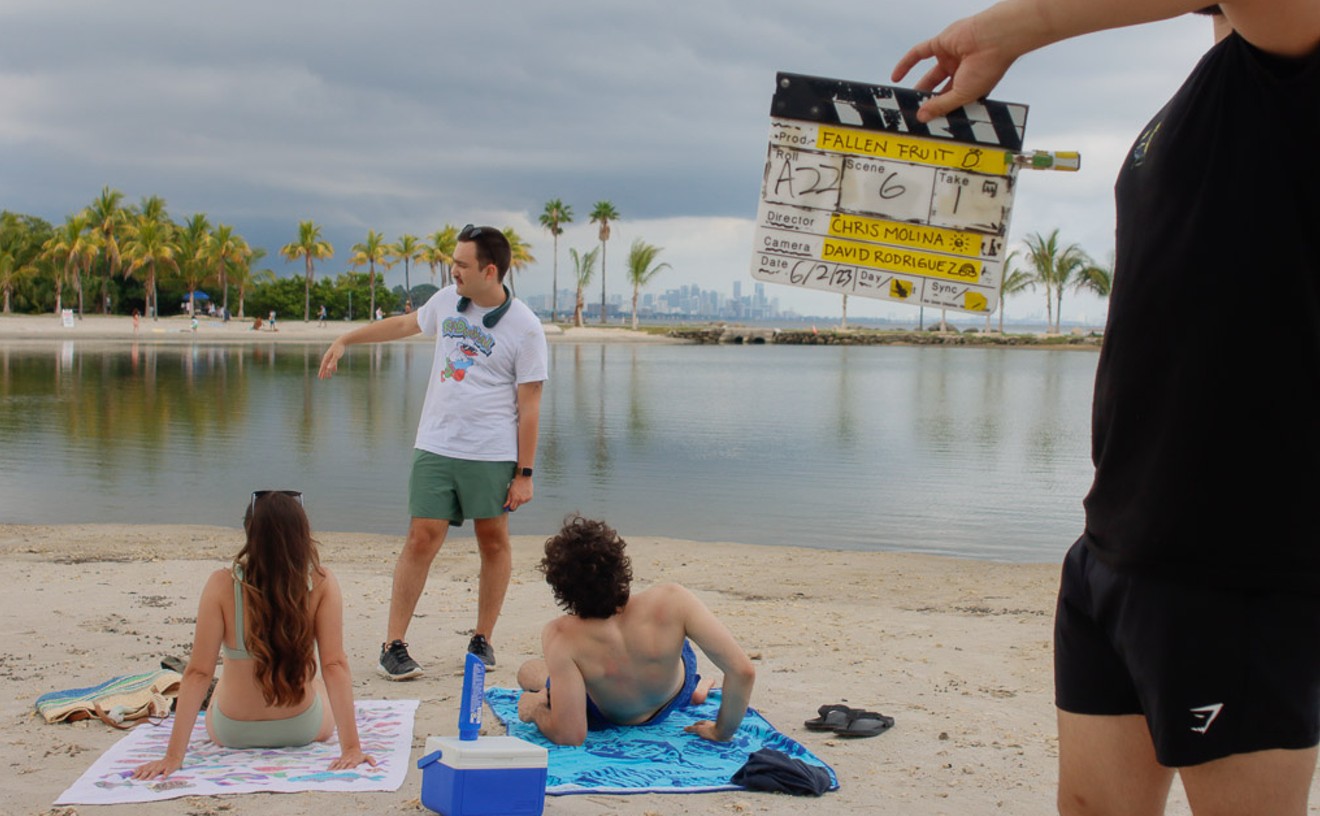We all know what Miami looks like in the movies. It's the same scene every time: a plane flies over a nonexistent "Miami" sign and whisks us into a flashy world of clubs, beaches, and salsa music. It's the city of Miami Vice, or this year's War Dogs, the based-on-real-events story of two South Beach schmucks who become unlikely arms dealers. It's the Miami that gets sold to tourists, the one we construct at work in hotels and bars.
In 2016, however, two films showed the true Miami we live in — mundane, difficult, unglamorous, yet far deeper than what's usually seen of the Magic City. One of those films is Moonlight, the much-buzzed-about movie that won the Golden Globe for Best Picture, Drama, last month and snagged Oscar nominations for Best Picture, Best Director, and six other categories this morning. The other is the far lesser-known River of Grass, about a pair of hicks living in the western reaches of Dade and Broward Counties, just before civilization gives way to the Everglades.
River of Grass, which debuted at the Sundance Film Festival in 1994 and was considered lost until its re-release in early 2016, takes a bored suburbanite couple from the county line and sends them on a Bonnie-and-Clyde-esque adventure in the aftermath of a shooting. But there are a few differences: The young couple is neither young nor a couple. They're two 30-somethings who just met at a bar, one a housewife and the other unemployed. And there's no murder; the two panic themselves into thinking they need to skip town, so they hide in a local motel and pay the bill by thrifting their parents' junk until they see the guy they thought they killed. Thelma and Louise, this is not.
Still, the film remains thrilling not only because Miami-native writer/director Kelly Reichardt's quick editing and acerbic script perfectly illustrate the setting, but also because South Floridians can clearly see ourselves in it. Reichardt reveals Miami as only a born-and-raised Floridian sees it: a tacky, decaying paradise that let itself go. And being a born-and-raised Floridian myself, I was shocked by how true the film felt in its depiction of suburban malaise. Ultimately, River of Grass is about two things: the dullness of Dade County and the urge to leave that many of its residents feel; and the forces, both structural and personal, that keep these characters stuck in the swamp. The director said it best herself in a 1995 interview: “It took me 19 years to get out of Miami; I didn’t want to go back.”
In Moonlight, a boy named Chiron tries to get away from various Miami surroundings: prejudiced bullies, a drug-addicted mother, and the squalor of the Liberty City projects where he lives. He runs; he walks; he even takes Metrorail. More than once, he ends up at the beach.
In building Moonlight, Liberty City-born director Barry Jenkins balances the ugliness of the hood with more intimate moments. We see the violence of Chiron’s everyday life, a thousand times more harrowing than the boredom of River of Grass. Chiron, slowly understanding his homosexuality in a world aggressively set against it, must choose to embrace the turmoil around him or fall victim to it.
But then we see him at the beach — not the eternally busy hot spot of spring-breaker fantasy, but a secluded, serene place where a conflicted child can find himself. It’s where a teenage Chiron has his first sexual encounter, a late-night rendezvous with a childhood friend. It’s also where Juan, a local drug dealer and unlikely father figure, teaches the boy to swim and to better define himself. Such definitions are what Moonlight is about; Miami constantly gives Chiron obstacles, but it also gives him sanctuary.
Moonlight and River of Grass share few commonalities. But the success of each film rests on the balance between seemingly contradictory aspects of the South Florida experience. Watching them, you feel only a few steps removed from the action. It's seeing a car disappear into I-95 traffic or a young man standing on the same moonlit beach you’ve visited dozens of times. Welcome to Miami as it is, not as it’s imagined.
[
{
"name": "Air - MediumRectangle - Inline Content - Mobile Display Size",
"component": "19274298",
"insertPoint": "2",
"requiredCountToDisplay": "2"
},{
"name": "Editor Picks",
"component": "17482312",
"insertPoint": "4",
"requiredCountToDisplay": "1"
},{
"name": "Inline Links",
"component": "18711090",
"insertPoint": "8th",
"startingPoint": 8,
"requiredCountToDisplay": "7",
"maxInsertions": 25
},{
"name": "Air - MediumRectangle - Combo - Inline Content",
"component": "17482310",
"insertPoint": "8th",
"startingPoint": 8,
"requiredCountToDisplay": "7",
"maxInsertions": 25
},{
"name": "Inline Links",
"component": "18711090",
"insertPoint": "8th",
"startingPoint": 12,
"requiredCountToDisplay": "11",
"maxInsertions": 25
},{
"name": "Air - Leaderboard Tower - Combo - Inline Content",
"component": "17482313",
"insertPoint": "8th",
"startingPoint": 12,
"requiredCountToDisplay": "11",
"maxInsertions": 25
}
]











